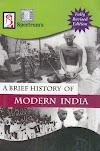Anglo-French Rivalry
Anglo-French Rivalry (Carnatic Wars)
- British & French EIC -- desire for huge profit -- necessary to eliminate competition, so that they get monopolistic control over trade.
- First Carnatic War (1746-48) - extension of Anglo-French war in Europe
- 1740 - Austrian war of succession. British supported claim of Maria Theresa whereas French supported the claim of Charles Albert. The outbreak of war in Europe found its reflection in India also.
- British - offensive - seized some French ships
- French retaliated - seized Madras.
- British appealed Nawab of Carnatic, Anwaruddin for help. Nawab sent his forces but were defeated.
- Battle of St. Thome - French defeated Anwaruddin
- The end of Austrian war of succession led to the end of First Carnatic war with Treaty of Aix-la-Chappele (1748). As per the treaty Madras was restored to the British and French got back their North American territories.
- Implication - This is an eyeopener for Europeans as it revealed that even a small disciplined army could easily defeat s much larger Indian army. Also, French superiority over British was displayed.
- Dupleix sought to increase his power and French influence in South India by interfering in local dynasties disputes.
- Immediate cause - death of Nizam of Hyderabad, Asaf Jah
- Hyderabad - French supported Muzaffar Jung whereas British supported Nasir Jung.
- Carnatic - French supported Chanda Sahib whereas British supported Anwaruddin.
- Battle of Ambur - Anwaruddin was killed.
- Robert Clive - surprise attack on Arkot. French surrendered @ Trichonopoly. Chanda Sahib was executed by Muhammad Ali, son of Anwaruddin.
- Treaty of Pondicherry (1754) - Dupleix was recalled. French agreed not to interfere in the quarrels of native princes.
- Implication - Now the rulers of Hyderabad and Carnatic became their clients rather than patriots. Also, in this war British an edge over French.
- India - British (Sir Eyre Coote) vs French (Count De Lally)
- 1758 - French captured Fort St. David and sanctioned a hasty and misconceived attack on Tanjor -- Failed
- Battle of Wandiwash (1760) - British defeated French
- Treaty of Paris (1763) - put an end to French ambition in India. French factories were restored but could no longer be fortified. French were allowed to continue their trade but had to accept British protectorate in India. French also agreed not to interfere in the political affairs of India.
- Implication - British became the supreme European power in India (as Dutch had already been defeated in the Battle of Bidara, 1759).
Reason for French failure
Different System of Government
- French govt. - Despotic & Autocratic, dependent on personality of monarch, Feudal, Corrupt & relatively unstable, Louis XIV ruined country's financial resources
- British govt. - Enlightened oligarchy, guided by constitutionalism
- French - Sub-ordinated their commercial interest to territorial expansion - got almost nothing on both fronts
- British - Inspite of their imperialistic motive, British never neglected their commercial interest and thus always had a sound financial condition.
- French - Government enterprise - controlled and regulated by government: delay in decision making: took little interest in promoting company's prosperity: heavily dependent on grants, subsidies and loans.
- British - Private enterprise - less control of government: take instant decision: financially sounder: more enthusiastic about promoting trade and increasing profit.
- Naval supremacy of British placed Count De Lally at a grievous disadvantage and thus can't repeat exploits of Dupleix.
- British victory in Plassey ensured a smart flow of wealth at their disposal.
- In this regard, Dupleix made a cardinal blunder in looking for the key of India in Madras: what Robert Clive found it in Bengal.
- British - Superior political leadership & military generalship (Robert Clive, Sir Eyre Coote, Lawrence, etc)
- French - There were only Dupleix on French side who was also recalled after Second Carnatic War. Also, the French sub-ordinates were incompetent compared to that of British.
 |
Joseph Marquis Dupleix |
- Dupleix - Notwithstanding, he possessed qualities of an administrator, a diplomat, and a brilliant political leader having broader political insight. But he can't escape the responsibilities.
- He is comparatively indifferent towards trading and financial problems of the company.
- He was a shrewd politician/diplomat but not a soldier. He planned a compaign, direct his lieutenants but can't lead an army in the battlefield like Clive or Lawrence.
To download notes, Click here
Notes on other subjects
Optional Notes
Note - This is my Vision IAS Notes (Vision IAS Class Notes) and Ashutosh Pandey Sir's Public Administration Class notes. I've also added some of the information on my own.
Hope! It will help you to achieve your dream of getting selected in Civil Services Examination 👍
Notes on other subjects
Optional Notes
Note - This is my Vision IAS Notes (Vision IAS Class Notes) and Ashutosh Pandey Sir's Public Administration Class notes. I've also added some of the information on my own.
Hope! It will help you to achieve your dream of getting selected in Civil Services Examination 👍




0 Comments